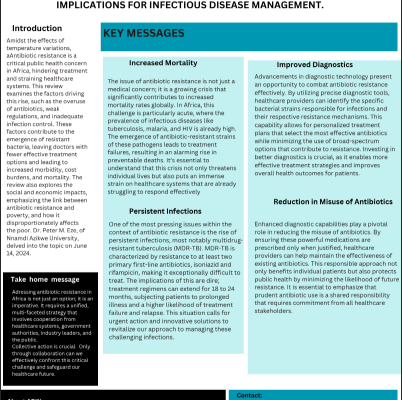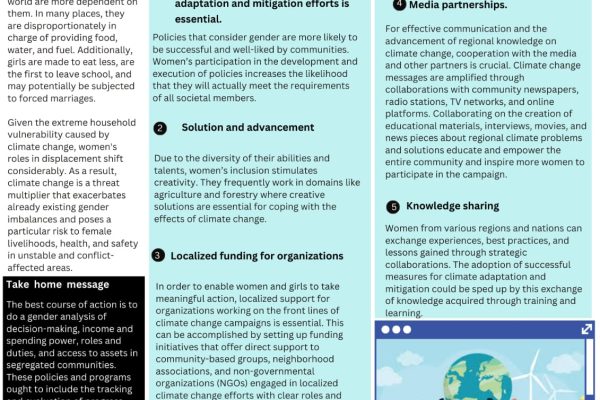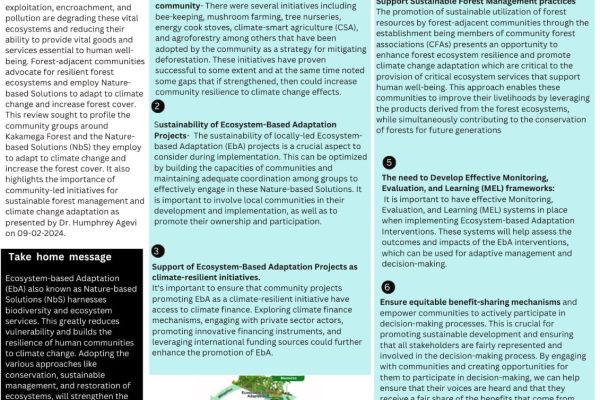-
ENHANCING EVIDENCE-INFORMED POLICYMAKING FOR THE ENERGY AND HUMAN HEALTH NEXUS IN KENYA
Introduction The intricate relationship between energy access and human health is crucial for sustainable development. However, policymakers often make decisions in this area without the necessary evidence-based foundation….
Continue reading -
JUST ENERGY TRANSITION AS A CATALYST FOR SUB-SAHARAN AFRICA’S TRANSFORMATION
Introduction. Energy is the lifeblood of economic growth and development. Yet, much of Sub-Saharan Africa remains mired in energy poverty, hindering industrialization and social…
Continue reading -
RENEWABLE ENERGY PRICING POLICY GAPS AND MARKET CONSTRAINTS IN AFRICA; THE CASE STUDY OF NIGERIA
Introduction Nigeria’s energy sector has undergone significant transformation due to changes in its renewable energy regime and economic conditions. Policy mechanisms for the energy sector are highly correlated…
Continue reading -
ASSET AND RESOURCE STRANDING IN THE CLEAN ENERGY TRANSITION
Introduction The global shift towards clean energy presents a significant challenge: the stranding of assets and resources currently tied to fossil fuels. This phenomenon, where economic value is…
Continue reading -
ANTIBIOTIC RESISTANCE IN AFRICA: TREATMENT FAILURES AND IMPLICATIONS FOR INFECTIOUS DISEASE MANAGEMENT.
Introduction. Antibiotic resistance is a critical public health concern in Africa, hindering treatment and straining healthcare systems. This review examines the factors driving this rise, such as the…
Continue reading -
HOW GENDER PLAYS A ROLE IN CLIMATE CHANGE
Introduction The global climate crisis presents significant challenges that are far from being gender-neutral. Around the world, women often depend on natural resources more…
Continue reading -
-
EFFECTIVENESS OF ECOSYSTEM ADAPTATION AS A STRATEGY FOR CLIMATE ADAPTATION AROUND FOREST-CENTRIC ECOSYSTEMS: CASE OF KAKAMEGA FOREST
Introduction. Forests are important in mitigating climate change as they act as carbon sinks, sequestering carbon dioxide from the atmosphere and reducing greenhouse gas concentrations….
Continue reading -
ASSESSMENT OF CLIMATE RISKS, URBAN HEALTH SYSTEM VULNERABILITY, AND INDIVIDUAL ADAPTATION STRATEGIES IN AFRICAN CITIES: A CASE STUDY OF N’DJAMENA, CHAD.
Introduction Urban health systems are seriously at risk from climate change, especially in African cities. The capital city of Chad, N’Djamena, is the subject of this…
Continue reading -
THE IMPACT OF CLIMATE CHANGE ON AIR QUALITY IN DEVELOPING COUNTRIES
Introduction. Climate change’s effects on air quality in developing economies is a complicated and critical concern with major implications for equality, economic growth, and public health. For governments…
Continue reading









